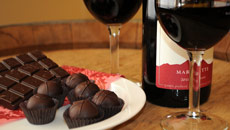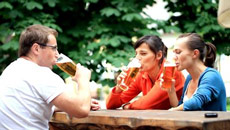In a first, scientists have come up with an explanation to why a sudden shock, stress and fear may trigger heart attack and they found that multiple bacterial species living as biofilms on arterial walls could hold the key to such attacks.
Hormones released during these events appear to cause bacterial biofilms on arterial walls to disperse, allowing plaque deposits to rupture into the bloodstream, the findings showed.
Because the biofilms are closely bound to arterial plaque, the dispersal of a biofilm could cause sudden release of the surrounding arterial plaque, triggering a heart attack.
"Our hypothesis fitted with the observation that heart attack and stroke often occur following an event where elevated levels of catecholamine hormones are released into the blood and tissues, such as occurs during sudden emotional shock or stress, sudden exertion or over-exertion," said David Davies of Binghamton University in the US.
The researchers isolated and cultured different species of bacteria from diseased carotid arteries that had been removed from patients with atherosclerosis.
Their results showed multiple bacterial species living as biofilms in the walls of every atherosclerotic (plaque-covered) carotid artery tested.
The researchers added norepinephrine, at a level that would be found in the body following stress or exertion, to biofilms formed on the inner walls of silicone tubing.
"At least one species of bacteria - Pseudomonas aeruginosa - commonly associated with carotid arteries in our studies, was able to undergo a biofilm dispersion response when exposed to norepinephrine, a hormone responsible for the fight-or-flight response in humans," Davies stated.
This research suggests that management of bacteria within an arterial plaque lesion may be as important as managing cholesterol.
The study was published in the journal mBio.





